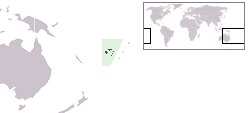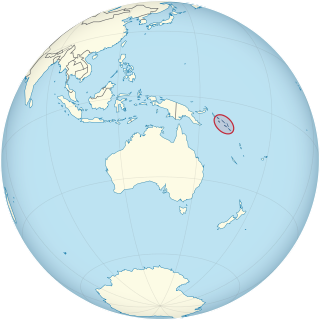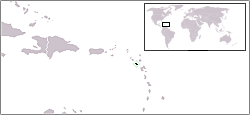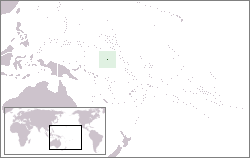
Lesbian, gay, bisexual, and transgender (LGBT) people in Gabon face legal challenges not experienced by non-LGBT residents. Except for a period between July 2019 and June 2020, same-sex sexual activity has generally been legal in Gabon.
Section 377 of the British colonial penal code criminalized all sexual acts "against the order of nature". The law was used to prosecute people engaging in oral and anal sex along with homosexual activity. As per Supreme Court Judgement since 2018, Indian Penal Code Section 377 is used to convict non-consensual sexual activities among homosexuals with a minimum of ten years imprisonment extended to life imprisonment. It has been used to criminalize third gender people, such as the apwint in Myanmar. In 2018, then British Prime Minister Theresa May acknowledged how the legacies of British colonial anti-sodomy laws continue to persist today in the form of discrimination, violence, and death.

The rights of lesbian, gay, bisexual, and transgender (LGBT) people in Singapore have evolved over the decades. Same-sex sexual activity is legal for both males and females; for men it was officially legalised in 2022 after being de facto decriminalised since 2007, and for women it was always legal. Prior to 2022, same-sex sexual activity between males was de jure illegal under the British colonial-era Section 377A of the Penal Code. The law had been de facto unenforced for decades. In February 2022, the Court of Appeal in the Supreme Court reaffirmed that 377A cannot be used to prosecute men for having sex with other men, and that it is "unenforceable in its entirety". Transgender rights in the country are also progressive in the region, which included Singapore being the first country in Asia to legalise sex reassignment surgery in 1973.

Lesbian, gay, bisexual, and transgender (LGBT) rights in Fiji have evolved rapidly over the years, however, LGBT people may still face legal challenges not experienced by non-LGBT residents. In 1997, Fiji became the second country in the world after South Africa to explicitly protect against discrimination based on sexual orientation in its Constitution. In 2009, the Constitution was abolished. The new Constitution, promulgated in September 2013, bans discrimination based on sexual orientation and gender identity or expression. However, same-sex marriage remains banned in Fiji and reports of societal discrimination and bullying are not uncommon.

Lesbian, gay, bisexual, and transgender (LGBT) people in Romania may face legal challenges and discrimination not experienced by non-LGBT residents. Attitudes in Romania are generally conservative, with regard to the rights of gay, lesbian, bisexual, and transgender citizens. Nevertheless, the country has made significant changes in LGBT rights legislation since 2000. In the past two decades, it fully decriminalised homosexuality, introduced and enforced wide-ranging anti-discrimination laws, equalised the age of consent and introduced laws against homophobic hate crimes. Furthermore, LGBT communities have become more visible in recent years, as a result of events such as Bucharest's annual pride parade and Cluj-Napoca's Gay Film Nights festival.

Lesbian, gay, bisexual, and transgender (LGBT) people in Kenya face significant challenges not experienced by non-LGBT residents. Sodomy is a felony per Section 162 of the Kenyan Penal Code, punishable by 21 years' imprisonment, and any sexual practices are a felony under section 165 of the same statute, punishable by 5 years' imprisonment. On 24 May 2019, the High Court of Kenya refused an order to declare sections 162 and 165 unconstitutional. The state does not recognise any relationships between persons of the same sex; same-sex marriage is banned under the Kenyan Constitution since 2010. There are no explicit protections against discrimination on the basis of sexual orientation and gender identity. Adoption is restricted to heterosexual couples only.

Lesbian, gay, bisexual, and transgender (LGBT) rights in Cyprus have evolved in recent years, but LGBT people still face legal challenges not experienced by non-LGBT residents. Both male and female expressions of same-sex sexual activity were decriminalised in 1998, and civil unions which grant several of the rights and benefits of marriage have been legal since December 2015. Conversion therapy was banned in Cyprus in May 2023. However, adoption rights in Cyprus are reserved for heterosexual couples only.

Lesbian, gay, bisexual, and transgender (LGBT) rights in Andorra have advanced significantly in the 21st century, and are now considered generally progressive. Civil unions, which grant all the benefits of marriage, have been recognized since 2014, and discrimination on the basis of sexual orientation is constitutionally banned. The General Council passed a bill on 21 July 2022 that would legalize same-sex marriage in 2023, and convert all civil unions into civil marriage. In September 2023, Xavier Espot Zamora, the Prime Minister of Andorra, officially came out as homosexual.

Lesbian, gay, bisexual, and transgender (LGBT) people in San Marino may face legal challenges not experienced by non-LGBT residents. Both male and female same-sex sexual activity are legal in San Marino, but households headed by same-sex couples are not eligible for the same legal protections available to opposite-sex couples.

Lesbian, gay, bisexual, and transgender (LGBT) rights in Angola have seen improvements in the early 21st century. In November 2020, the National Assembly approved a new penal code, which legalised consenting same-sex sexual activity. Additionally, employment discrimination on the basis of sexual orientation has been banned, making Angola one of the few African countries to have such protections for LGBT people.

Lesbian, gay, bisexual, and transgender (LGBT) people in Botswana face legal issues not experienced by non-LGBT citizens. Both female and male same-sex sexual acts have been legal in Botswana since 11 June 2019 after a unanimous ruling by the High Court of Botswana. Despite an appeal by the government, the ruling was upheld by the Botswana Court of Appeal on 29 November 2021.

Lesbian, gay, bisexual, and transgender (LGBT) people in Nicaragua face legal challenges not experienced by non-LGBT residents. Both male and female types of same-sex sexual activity are legal in Nicaragua. Discrimination based on sexual orientation is banned in certain areas, including in employment and access to health services.

Lesbian, gay, bisexual, and transgender (LGBT) people in Malawi face legal challenges not experienced by non-LGBT residents. Both male and female expressions of same-sex sexual activity are illegal within the nation. The Penal Code prohibits "carnal knowledge against the order of nature", attempts to commit "carnal knowledge against the order of nature", and acts of "gross indecency".

Lesbian, gay, bisexual, and transgender (LGBT) people in Solomon Islands face legal challenges not experienced by non-LGBT residents. Male same-sex sexual activity is illegal, punishable by up to 14 years imprisonment, but the law is not enforced.

Lesbian, gay, bisexual, and transgender (LGBT) people in the Dominican Republic do not possess the same legal protections as non-LGBT residents, and face social challenges that are not experienced by other people. While the Dominican Criminal Code does not expressly prohibit same-sex sexual relations or cross-dressing, it also does not address discrimination or harassment on the account of sexual orientation or gender identity, nor does it recognize same-sex unions in any form, whether it be marriage or partnerships. Households headed by same-sex couples are also not eligible for any of the same rights given to opposite-sex married couples, as same-sex marriage is constitutionally banned in the country.

Oceania is, like other regions, quite diverse in its laws regarding LGBT rights. This ranges from significant rights, including same-sex marriage – granted to the LGBT+ community in New Zealand, Australia, Guam, Hawaii, Easter Island, Northern Mariana Islands, Wallis and Futuna, New Caledonia, French Polynesia and the Pitcairn Islands – to remaining criminal penalties for homosexual activity in six countries and one territory. Although acceptance is growing across the Pacific, violence and social stigma remain issues for LGBT+ communities. This also leads to problems with healthcare, including access to HIV treatment in countries such as Papua New Guinea and the Solomon Islands where homosexuality is criminalised.

Lesbian, gay, bisexual, and transgender (LGBT) persons in Montserrat face legal challenges not experienced by non-LGBT residents. Same-sex sexual activity has been legal in Montserrat since 2001.

Lesbian, gay, bisexual, and transgender (LGBT) people in Seychelles face legal challenges not experienced by non-LGBT residents. Same-sex sexual activity has been legal since 2016, and employment discrimination on the basis of sexual orientation is banned in Seychelles, making it one of the few African countries to have such protections for LGBT people. However, LGBT people may nonetheless face stigmatization among the broader population.

Lesbian, gay, bisexual, and transgender (LGBT) people living in Nauru may face legal and social challenges not experienced by non-LGBT residents. Same-sex sexual activity has been legal since May 2016, but there are no legal recognition of same-sex unions, or protections against discrimination in the workplace or the provision of goods and services.
Palau does not recognise same-sex marriage, civil unions or any other form of recognition for same-sex couples.


















